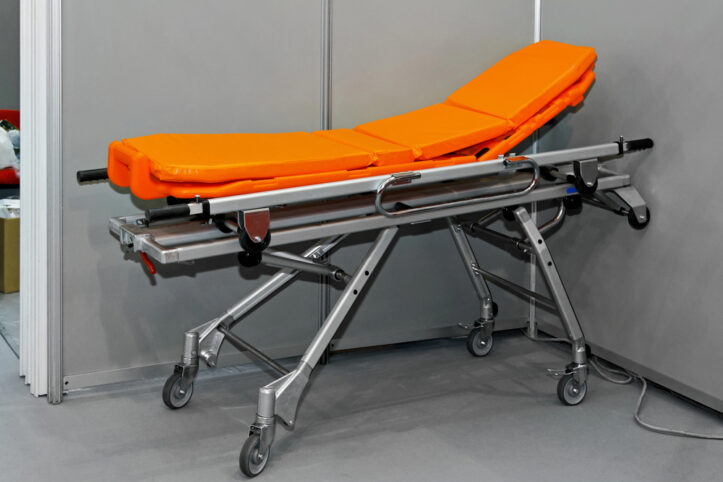Hospitalized suspects – Warnings from Fairfax criminal lawyer
Hospitalized suspects – Warnings from Fairfax criminal lawyer

Hospitalized and in-ambulance suspects- Fairfax criminal lawyer warns you about police visits and overhearing
Hospitalized and in-ambulance criminal suspects are vulnerable not only health-wise, but also to police arrival, guarding, overhearing, and interrogation right there, in this place that should be reserved for patients and health care personnel only, with protection from police listening. However, as a Fairfax criminal lawyer, I repeatedly see police bodycam video of ambulance and hospital personnel doing nothing to prevent police presence in ambulances while healthcare personnel are getting information for evaluating and treating the patient, and in hospitals when the suspect is in a bed, often hooked up to monitoring and IV equipment. The latest Virginia Court of Appeals case on police questioning in hospitals is not going to help change that state of affairs. Johnson v. Virginia, ___ Va. App. ___ (2025).
Police interrogation of hospitalized defendants with self-inflicted wounds and hooked up to monitoring equipment, together with round-the-clock posting of a law enforcement officer at the hospital door, does not by itself amount to being in custody that even requires Miranda rights.
Police interrogation of hospitalized defendants with self-inflicted wounds (as happened with Johnson, after he fatally shot his wife (claiming by accident) and hooked up to monitoring equipment, together with round-the-clock posting of a law enforcement officer at the hospital door, does not by itself amount to being in custody that even requires Miranda rights. Johnson. Instead, Johnson addresses considering the following factors for determining whether Miranda warnings are required under such circumstances: “Whether others were present during questioning, ‘such as medical staff and visitors and family of the patient.’; The “time of day” of questioning, ‘with questioning that occurs during the middle of the day, as opposed to late at night, suggesting that police have not created a custodial situation’; Whether law-enforcement officers accompanied the suspect to the hospital; Whether the police maintained a constant presence at the patient’s hospital room; Whether the suspect was prevented from leaving the hospital by police or, instead, by the patient’s medical condition; The number of officers involved in the questioning; Whether the suspect agreed to speak or cooperate with police; Whether ‘the tone of a police interview with a hospital patient [was] accusatorial,” or ‘friendly and neutral’; The length of the interview”. Johnson.
Criminal suspects in medical facilities should not expect any health care worker-patient privilege when police are in earshot.
You now know, from Johnson, that if you are hospitalized or in an ambulance in Virginia, you are not going to get automatic physician (or health care worker)-patient privilege against police disclosing what they hear you say in those contexts, and you cannot expect ambulance personnel nor medical facility personnel to keep police out of earshot when getting your essential information for treating you. Know this now, because in times of medical distress, we might not be thinking about measuring what we say to such personnel in the event police are present.
What are my rights to remain silent with medical personnel?
Hospitalized and all other people have a right to remain silent with anyone. Just beware that declining to answer police questions is inadmissible in court, whereas declining to answer non-government personnel questions does not ordinarily carry Fifth Amendment Constitutional protections against your refusal coming into court. My argument for keeping such refusal to answer medical personnel questions out of court when police are present is that not protecting such refusal against being heard in court gives the police a windfall for hearing possibly incriminating information that they should not be entitled to hear.
Fairfax criminal lawyer Jonathan Katz relentlessly pursues your best possible defense against Virginia felony, misdemeanor, and DUI prosecutions. Usually Jon Katz can meet with you within a business day after you call us for your free initial, strictly confidential in-person consultation about your court-pending prosecution, at 703-383-1100, info@BeatTheProsecution.com, and (text) 571-406-7268.

